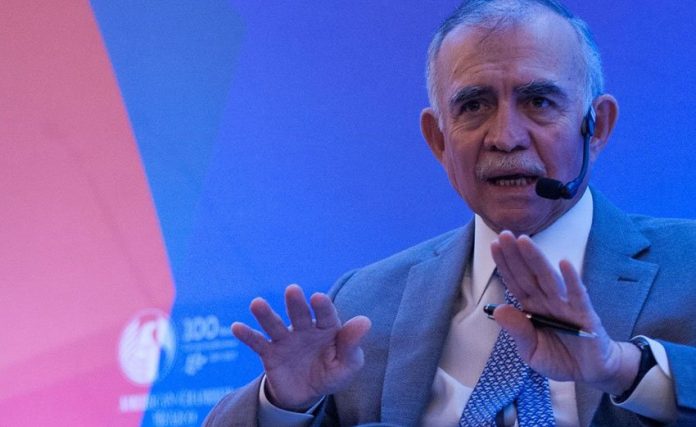The United States asked the Mexican government and the private sector not to accept investment from China, especially that directed to strategic projects, President López Obrador’s chief of staff has revealed.
Speaking at a meeting of the Mexican Iron and Steel Industry Chamber yesterday, Alfonso Romo said the request came from United States Secretary of Commerce Wilbur Ross at the conclusion of a bilateral business conference in Mérida, Yucatán, last month.
After the conference ended, several members of the Mexican delegation had a meeting with Ross, Romo said.
“I’m going to tell you a very interesting anecdote . . .” Romo said.
“He told us: ‘I want to request several things. We want to strengthen the [bilateral] relationship because the only way the United States can compete with China is to have a very strong common-front trading bloc,’” he continued.
According to Romo, Ross then said: “‘Secondly, we don’t want the participation of very active Chinese investment in Mexico, especially in strategic projects. Thirdly, we want you to help us to stop migration from Central America and fourthly, the president [Donald Trump] made a compromise, and consequently we’re going to take a lot of care with how we negotiate the 232 [metal tariffs].’”
The chief of staff said he was initially taken aback by the requests but quickly slipped into negotiation mode, using Mexican tomatoes (the United States introduced a 17.5% tariff on imports this month) and the U.S. metal tariffs – which have now been lifted – as bargaining chips.
“I remained silent. Then I said to him . . . you ask four things of us but you don’t want [Mexican] tomatoes; you have to decide if you want tomatoes or migrants, or steel or migrants,” Romo said.
Later in the meeting, the chief of staff clarified that investment from China, and any other foreign country, is welcome in Mexico.
“We want foreign investment to go from $29 billion or $30 billion [a year] to 35 or 40 billion. We see that a lot of American companies could come to Mexico, they’re Americans that produce in China and now because of the trade war they will look for a place to move,” Romo said.
“We must take advantage of the opportunity . . . a lot of industries that are there [in China] don’t have North American content [in their products] and they should come to Mexico.”
Source: El Financiero (sp)
